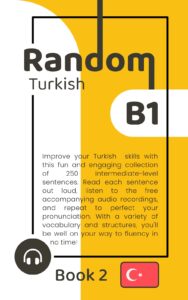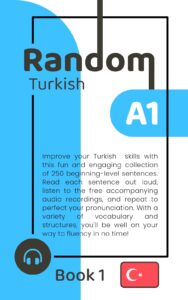1 • إلّي يْبات مْعَ الجّْران يِصْبح يْڤرْڤِرْ
This very funny yet revealing proverb creates the image of someone who “sleeps with the frogs and in the morning starts croaking like them.” It is used to refer to someone who spends a lot of time with someone else and takes on their habits (usually bad habits because frogs have a pejorative sense in Tunisian culture).
It is usually said ironically to someone who starts doing something he did not use to do before spending some time with someone known for doing it. For example, lying, swearing, being jealous, or too frugal, etc. So it is about acquiring new habits from a bad influence.
2 • الجار قْبَلْ الدّار
This Tunisian Arabic proverb emphasizes the importance of our neighbors in our lives. Its literal meaning is: “The neighbor comes before the house.” This means that it is indeed very important to know your future neighbors even before renting or buying a new house and that this may prevent problems and misunderstandings. I remember when I started to believe in this proverb. It was three years ago when I rented a very expensive apartment for one year and then discovered that my neighbor had four children who cried and shouted all day long. Consequently, even on weekends, I could not get any rest. I remember that going back home from work felt like a heavy burden for me, and I wished I had known about these neighbors before renting the apartment.
3 • هْرب مِن قطْرة جا تَحْت ميزاب
This proverb talks about those who think they have escaped or overcome a difficulty but soon find themselves surrounded by a bigger and more serious issue. Its literal meaning is: “He fled a drop and found himself under a rain gutter.” Once, a friend of mine escaped from a policeman after he stopped her because she did not have her papers with her, but after a few seconds, she found herself in front of a roadblock set up by the police and her situation went from bad to worse. So she escaped “a drop” (one policeman who could have forgiven her and released her) and soon found herself under “the rain gutter” (a group of policemen who fined her.)
4 • العْزوزة هازِزْها الواد وهِيَ تْقول العام صابة
This proverb creates a very funny scene of an old lady being carried away by floods, which is a very risky situation, but she, not realizing the danger, still calls it a fruitful year, and she is happy with the rain! Its literal translation is: “The old lady is dragged along by the river and yet calls it a fruitful year.”
It is about people who are in trouble but do not realize it. Instead, they are focusing on the positive part of the issue. The last time I heard this proverb was not long ago when we moved to a new country and I had to buy insurance before I gave birth. The only insurance I could find was extremely expensive, and we did not have enough money. I was in real trouble, but instead of focusing on that, I was repeating to my husband how amazing the health sector was! Then, I remember, he told me العْزوزة هازِزْها الواد وهِيَ تْقول العام صابة.
5 • الجمل ما يراش حدبتو
It is to say that people who have some flaws are not able to see or to recognize them. Its literal translation is: “The camel does not see its hump.”
“Hump” here refers to drawbacks and flaws. For example, when someone is too tightfisted but still criticizes the others for being tightfisted. So he did not see “his own hump” and he criticizes others’ “humps”. Or when someone lies often but is irritated when other people start lying to him.
6 • خانْها ذْراعْها قالِت مسْحورة
This proverb also provides a funny image of a girl or a lady that, instead of blaming her arm that has failed her, she blames evil spirits.
Its literal meaning is: “Her arm has failed her, so she said that she is bewitched.”
It is about people who instead of admitting their limited capacities that caused their failure, they put the blame on some “invisible power.”
Like the majority of Arab people, Tunisians believe in the invisible and unreachable world where dwell both good and evil spirits. In this case, they would blame the evil ones for causing their failure and mischief, thinking and believing that they were bewitched, otherwise, they would never have failed. This proverb could be applied to people who literally blame evil forces, or to those who just blame others for their own failure.
There is another similar proverb which says:
“إلّلي ما تعرفش تشطح اتقول الأرْض عوجة”. It means literally: “She who does not know how to dance, would say that the floor is sloping.” So, instead of admitting that she does not know how to dance, she blames the floor because it is inclined.
7 • كي اتْطيح البڤْرة تُكْثُر سْكاكِنْها
This one means that when a strong person faces difficulties, those who used to hate him or envy him in secret–usually out of fear–would appear and overtly express their hatred and disdain. Sometimes, even those who used to admire and respect him would turn their backs on him.
Its literal translation is: “When the cow falls, knives appear around it.”
The last time I came across this proverb was not long ago when a very famous Tunisian journalist used it in a post on his Facebook account after he was released from jail. With this proverb, he was expressing his disappointment in the many people who let him down during his weakness.
8 • أعْمِل روحِك مهْبول تْعيش
As fools are tolerated and pitied in nearly all societies, sometimes when you want to escape trouble, you can just pretend to be insane, and you will be safe! It literally means: “Pretend to be a fool and you will live.”
As a matter of fact, I know a kleptomaniac lady who always steals things from her friends, neighbors, relatives, and shops. As soon as someone confronts her, she pretends to be mentally deranged and consequently, everybody forgives her. I also know a woman in my town who pretends to be mentally ill in order to take advantage of the state for free medicine, transportation, etc.
9 • يْمين البكّوش في صِدْرو
This proverb says that talking too much is useless and that being silent and efficient is better than being talkative and useless. Its literal translation is: “The mute’s oath is in his chest.” It emphasizes the value of silence and that silence may entail real deeds, unlike talking too much and doing nothing. It is usually said by someone who has been abused or mistreated or unfairly treated and plans to avenge himself, so he would say: “يْمين البكّوش في صِدْرو” implying “I am not going to say much, but you will see what I am going to do!”
There is another proverb which is very similar to this one and it praises the silence:
“إذا كان الكلام من فضّة، السّكات من ذهب.” which literally means: “If talking is made of silver, then silence is made of gold.”
10 • اسْمع الكْلام إلّي يْبكّيك وْ ما تِسْمعْش الكْلام إلّي يْضحّْكِكْ
Real and sincere advice comes from people who truly care about you! The literal meaning of this proverb is: “Listen to the words that make you cry and do not listen to those that make you laugh.” Caring people may, in fact, be hurting and tough, but remain true and honest. However, indifferent people will always trivialize the issues and not make an effort to make you aware of certain facts. Parents usually say it to their children after being tough with them, in order to make them understand that they truly care about them even if they were a little bit strict.
11 • إسْإل مْجرِّب وْ ما تِسْإلْش طْبيب
Experience may be equivalent or in some cases better and more efficient than studies. The literal meaning of this proverb is: “Ask someone experienced; do not ask a doctor.” I personally know many people who are experienced but never attended school and many people who are literate but inexperienced and unable to give you decent advice. In this case, I would rather ask the ones with experience for advice!
12 • دْخول الحمّام موش كي خْروجو
It means that when you are engaged in something, you cannot resign easily whenever you decide. The literal translation of this proverb is: “Entering the Hammam is not like leaving it.” For example, when a man is engaged to be married but then decides to break up with his fiancée, many people would tell him دْخول الحمّام موش كي خْروجو, meaning that although it was indeed easy to get engaged, it is not so easy to break up now. He will have to face her and her family and maybe face some troubles and issues, too. The last time I heard this proverb was yesterday while watching a Tunisian soap, when the leader of a dangerous gang said to one of his members دْخول الحمّام موش كي خْروجو because the latter asked to leave the gang and to live peacefully with his family. So this ironic comment came as a negative response to his wish.
13 • إلّي خْلق ما يْضيّع
This proverb has a religious sense. It stresses God’s omnipresent guidance.
Its literal translation is: “The one who creates won’t let you get lost.”
It is usually said to someone who is desperate or facing troubles and starts losing hope. So this proverb encloses a beautiful comforting reminder with the aim of restoring hope. It could be said to someone who has lost their job, failed their exams, lost their money, etc.
14 • إلّي عْطى كِلْمْتو عْطى رقْبْتو
This wise proverb reminds people of the importance of promising and keeping one’s word. So when you promise something, it is vital to keep your word. The literal meaning of this proverb is: “He who gave his word, gave his neck.”
15 • إذا نصْحِك التاجر راهو شْطر النّْصيحة ليه
This proverb reflects a truth that is reasoned out of experience in the field of business and commerce. Its literal translation is: “When a trader gives you advice, half of the advice is for him.” This is not necessarily a warning against traders, but it is just a reminder that a trader, when talking to his customers, can never be unbiased. So the customer should always take this into consideration and not take all the trader’s advice and comments at face value.
16 • طاح القْدر وْفات العيشة
This proverb draws attention to the importance of mutual respect.
Its literal translation is: “Respect fell down; life ended.”
It could refer to respect between friends, relatives, neighbors, etc. But it is essentially used when talking about couples. According to this proverb, respect is a vital aspect in all relationships, and when respect “falls down” even once, then the relationship is over. I think it is true because even if we do forgive an act of disrespect, we can never really forget it, and consequently, the relationship may never be like it used to be. In this case, it is better to break up and never go back because the relationship will never be thoroughly restored.
17 • إضْحك لِلدِّنْيا تِضْحكْلِك
This proverb takes the form of beautiful advice. It literally means: “Laugh, and life will laugh with you.”
I personally think that this proverb is real, and it is true to the Law of Attraction theory which consists of attracting into our lives whatever we are focusing on. So if we are sad and depressed, we will attract more negative vibes and more troubles; however, when we are optimistic, we will attract only good things. The universe sends back to us what we have sent to it through our mood and thoughts. And this is what this proverb is about.
18 • حْبل الكِذْب قْصير وحْبل الصِّدْق طْويل
This is a wise and educational proverb which emphasizes the importance of telling the truth. Its literal translation is: “The rope of lying is short, and the rope of truth is long.” The rope here refers to the metaphorical “saving rope” (in Modern Standard Arabic: حبل النّجاة), so lying will save you but only for a short period. However, telling the truth will be your everlasting savior. There is another similar proverb:
“ كان الكِذب يْنجّي، الصِّدْق أنْجى.” Which means literally: “if lying saves (you), then telling the truth saves (you) more.”
19 • ما يْحِس بِالجمْرة كان الّي يعْفِس عْليها
This is about people who judge others, ignoring their difficulties and conditions. So this proverb comes as a response to them and it means literally: “Only he who walks on embers can feel it.” It is to say that, no matter how understanding and empathetic are we towards someone, we can never put ourselves in their shoes, and we can never truly feel what they feel. The embers in this proverb refer to the tough conditions that someone may face. It is better not to judge or criticize anyone because we don’t truly know their circumstances and what they are undergoing. Let’s take the example of a woman who decides to get a divorce. Her family and friends start criticizing her decision and judge it as irresponsible, especially when she has children. Her answer to those judgments would be: “ما يْحِس بِالجمْرة كان الّي يعْفِس عْليها” which is to say that they are not living her life and that they have no idea about what she is going through.
20 • حط الفلوس على فم الميت يضحك
Our final Tunisian Arabic proverb provides a funny metaphor of someone putting coins or bills on the mouth of a dead person, and the latter starts laughing. Its literal translation is: “Put money on a dead person’s mouth and he will start laughing.” This proverb is about money and how people (even the dead) love money. This proverb usually comes as an answer to those who pretend that they do not love money and that “money can’t buy everything.” This saying may come as a response to another famous Tunisian proverb which says:
“الفْلوس وْسخ الدِّنْيا” which means literally: “Money is the rubbish of life.” I personally would adhere to the first one. I think that money is an efficient means towards happiness, especially that nowadays money can even buy beauty and health!







